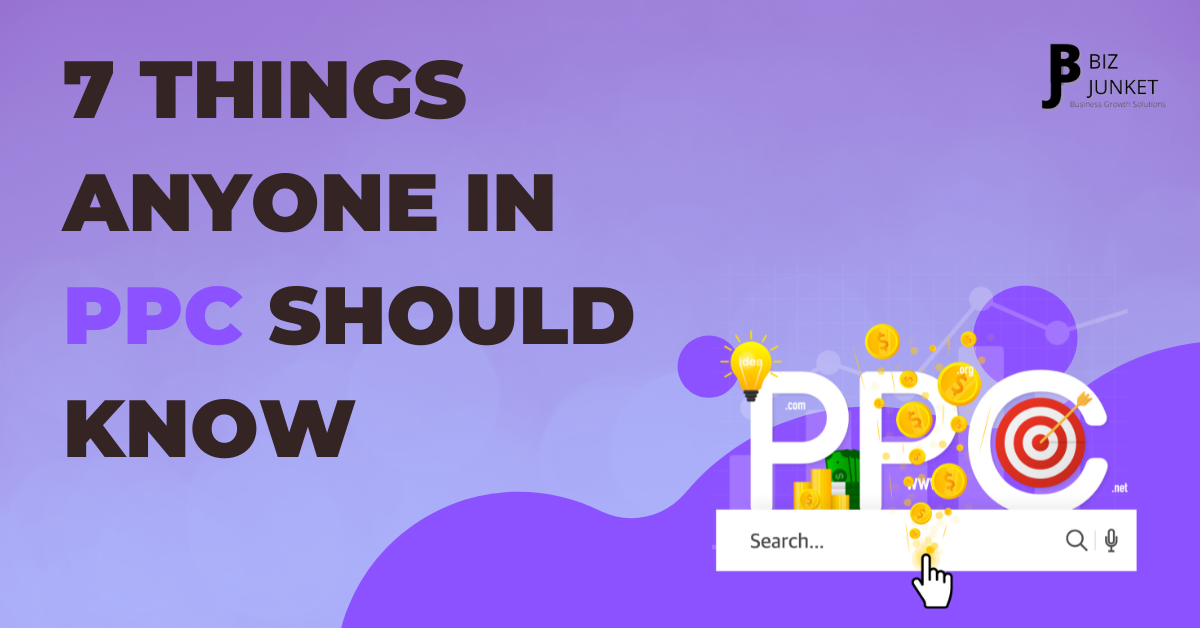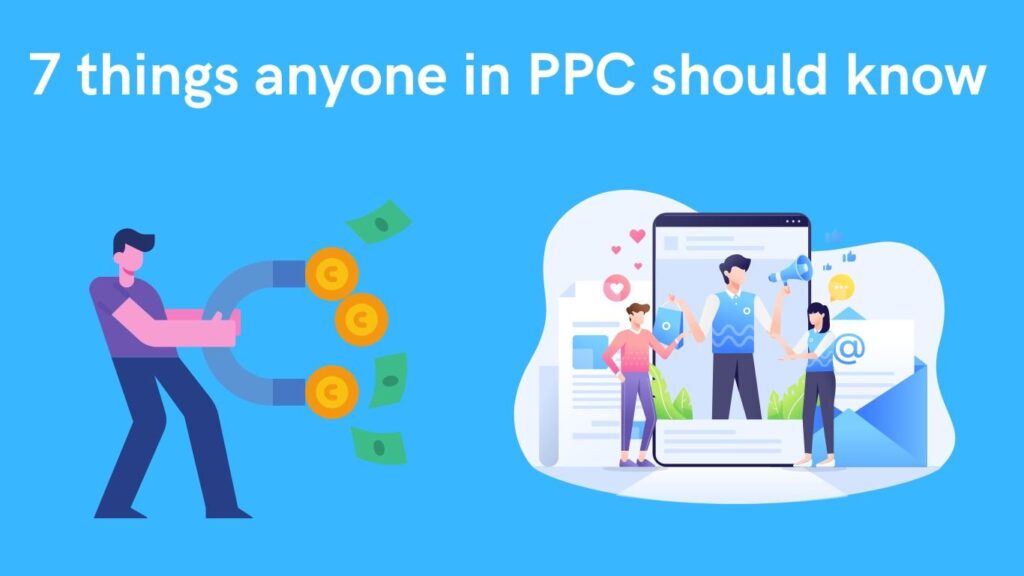
Things everyone should know before starting a PPC campaign so let’s jump into it.

1). Basic coding skills
Many people believe that they need to be a coding expert to be able to work in PPC. However, this simply isn’t the case. While coding knowledge can certainly be helpful, it isn’t a requirement to have success in PPC.
There are a number of other skills that are far more important for those working in PPC. These include analytical skills, creative thinking, and the ability to use data to make decisions. As long as you have these skills, you’ll be well on your way to success in PPC.
PPC, or pay-per-click, is a type of online advertising where businesses can pay to have their ads shown on search engines and other websites. It’s a popular way to generate leads and drive sales, and it can be a very effective marketing tool.
However, as with any type of marketing, there are a lot of moving parts to a successful PPC campaign. There’s a lot to keep track of from keyword research to ad copy to bid management. And if something isn’t working right, it can be hard to figure out the problem.
2). Basic design skills
When running a PPC campaign, it is important to have some basic design skills. This will allow you to create ads that are eye-catching and effective. Some things to keep in mind when designing your ads include:
1). Use colors that contrast well and are easy to read
2). Use clear and concise text
3). Use images that are relevant and visually appealing
By following these tips, you can create ads that will stand out and help you achieve your marketing goals.
There are a number of online tools available which can be used to create images and videos. Below are some of the most popular tools:
1). Canva: It is a popular online tool that can be used to create images and videos for free. It has a wide range of templates and tools which can be used to create professional-looking designs.
2). Adobe Spark: It is a free online tool that can be used to create images, videos, and web pages. It has a simple interface which makes it easy to create high-quality designs.
3). Piktochart: It is a free online tool that can be used to create infographics, presentations, and other visuals. It has a wide range of templates and tools which make it easy to create stunning visuals.
3). Attribution will never be perfect
There will always be some uncertainty when it comes to attribution on a pay-per-click campaign. This is because there are a number of different factors that can influence a user’s decision to click on an ad, from the ad itself to the time of day it was shown. As a result, it can be difficult to determine which specific element led to a conversion.
That being said, there are a number of ways to try to improve attribution accuracy. By using tracking tools and analyzing data, you can get a better understanding of how users interact with your ads. This information can then be used to optimize your campaigns and improve your attribution accuracy over time.
4). Best methods aren’t always “best”
Not all pay-per-click best practices are created equal. In fact, some of the “best practices” in pay-per-click can actually hurt your campaign and waste your budget.
Here are three pay-per-click “best practices” that you should avoid:
1. Bidding on branded terms
2. Using broad match
3. Focusing on click-through rate
A pay-per-click campaign can be a great way to generate leads and drive sales for your business. However, there are a few limitations to consider before starting a pay-per-click campaign.
1). PPC campaigns can be expensive. You’ll need to budget for the cost of the ads themselves, as well as the cost of hiring someone to manage the campaign. Additionally, you’ll need to be prepared for a certain amount of trial and error as you figure out which keywords and ad copy are most effective.
2). PPC campaigns can be time-consuming. You’ll need to dedicate time to creating and managing the campaign, as well as tracking the results.
3). PPC campaigns can be complex. There are a lot of moving parts, from the keywords you choose to the landing pages you create.
5). You’ll become a business consultant as much as a PPC pro

As a PPC professional, you’ll quickly learn that your job goes well beyond simply managing campaigns. You’ll also need to be a business consultant, providing advice and strategic guidance to your clients on a variety of topics.
From marketing to sales to operations, you’ll need to understand how all of the pieces fit together in order to help your clients achieve their desired results.
So if you’re thinking about becoming a PPC pro, be prepared to wear many hats. It’s a challenging and rewarding career that will enable you to help businesses grow and reach their full potential.
A lot of times clients come to us with an idea of what they want their project to be. And a lot of times, what they want is not feasible or not ideal. It’s our job to guide them towards what will actually work best for their project. But sometimes, clients can be difficult to work with if they’re not open to hearing our suggestions.
6). It’s as much around who you know as what you know
Paid media is a huge part of successful marketing, but it can be daunting to know where to start. After all, there are so many different platforms and options out there. And if you’re not careful, you can easily end up wasting a lot of money.
7. Things will constantly change
When I started working in pay-per-click (PPC) advertising, there was quite a lot for me to learn. PPC can be a complicated and nuanced thing, and there was definitely a learning curve for me. However, I found that the more I learned about PPC, the more I enjoyed it.
PPC is a constantly changing field, and there is always something new to learn. I love the challenge of keeping up with the latest changes and finding new ways to improve my campaigns.
If you’re thinking about starting a career in PPC, I encourage you to do it. Just be prepared to learn a lot! When you’re first getting started in digital advertising, it’s important to pay attention to understanding the different aspects of the field. This includes everything from the different types of ads you can create, to the targeting options available, to the best practices for creating and managing campaigns.